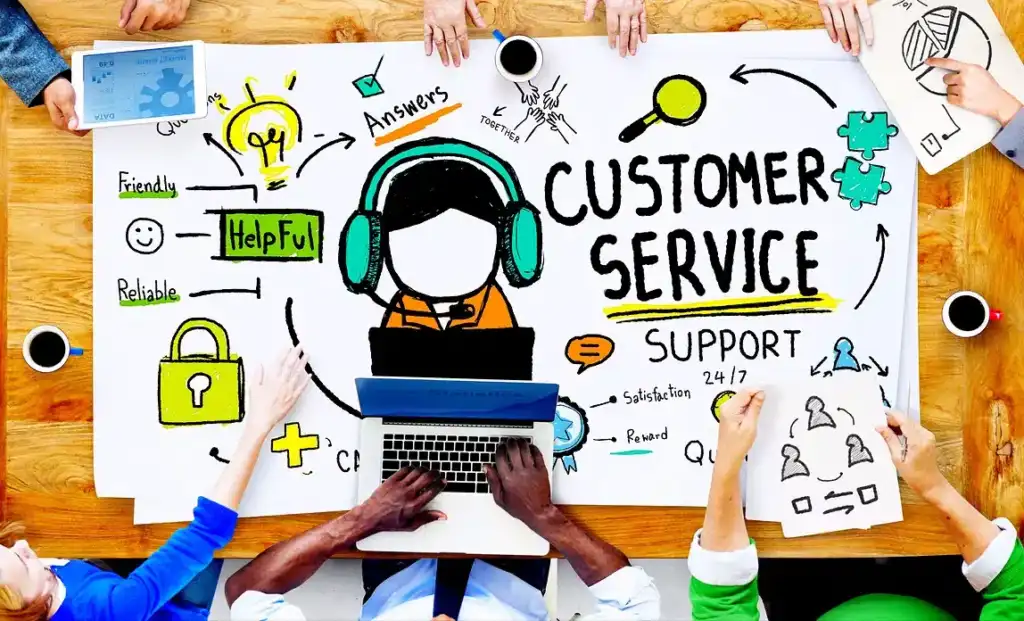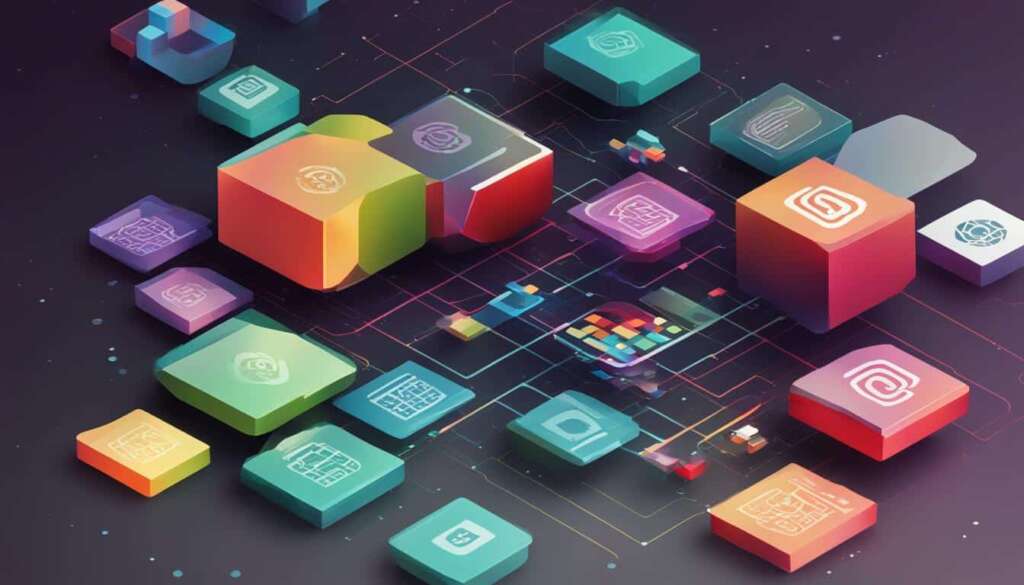Table of Contents
In an era where customer expectations are higher than ever, the Role of Technology in Modern Customer Service cannot be overstated. Technology is not just an enabler but a critical differentiator that can make or break a customer’s perception of a brand. From AI-powered chatbots that offer instant customer support, to real-time data analytics that provide valuable insights into customer behavior, technology is at the forefront of customer service innovation.
Moreover, the advent of cloud computing and mobile technology has made service more accessible, allowing businesses to serve their customers anytime, anywhere. Social media platforms have also entered the customer service arena, offering new channels for customer engagement and feedback.
This comprehensive guide will delve into the various technological tools, platforms, and strategies that are redefining customer service. We will explore how these technologies are not only enhancing operational efficiency but also elevating the customer experience to new heights. Whether you are a business owner, a customer service professional, or simply someone interested in the intersection of technology and customer service, this article will provide valuable insights into the transformative power of technology in modern customer service paradigms.
Emerging Technologies in Customer Service: A Closer Look
In a competitive marketplace where customer loyalty is hard to come by, emerging technologies are serving as game-changers in the realm of customer service. These technologies are not merely bells and whistles; they are fundamental shifts in how businesses interact with and serve their customers.

Artificial Intelligence: Beyond Chatbots
AI-powered chatbots have become the face of automated customer service, but the applications of artificial intelligence go much further. Advanced AI algorithms can sift through vast amounts of customer data to offer personalized recommendations, predict future behavior, and even identify potential issues before they escalate. This level of personalization and proactive service was unimaginable just a few years ago.
Virtual Reality: The New Frontier
Virtual Reality (VR) is not just for gamers; it’s making a significant impact in customer service as well. Imagine walking through a virtual showroom from the comfort of your home or experiencing a product in 3D before making a purchase. These immersive experiences are becoming possible thanks to VR, offering a level of engagement that traditional platforms can’t match.
Blockchain: Enhancing Security and Transparency
In an age where data breaches are all too common, Blockchain technology offers a fortress-like level of security. Its decentralized architecture ensures that customer data is not stored in a single point of failure, reducing the risk of hacks. Moreover, the transparency of blockchain allows for smart contracts, which can automate various aspects of customer service, from payments to data verification.
Internet of Things (IoT): Connected Customer Service
The Internet of Things (IoT) is more than just smart home devices; it’s a network of interconnected systems and devices that communicate with each other. In a customer service context, this means real-time monitoring of products, predictive maintenance alerts, and even automated service calls. For instance, a smart refrigerator can notify customer service if it detects a malfunction, initiating a service request without any human intervention.
By understanding and integrating these emerging technologies, businesses can not only elevate their customer service offerings but also create a more efficient, responsive, and customer-centric operation.
Challenges and Solutions in Implementing Technology in Customer Service
While the Role of Technology in Modern Customer Service is transformative, it’s not without its challenges. From data security concerns to the complexities of integrating new technologies into existing systems, businesses face a range of issues that can hinder the effective implementation of tech solutions.

Data Security: A Double-Edged Sword
While technologies like blockchain and cloud computing offer enhanced security features, the increasing amount of customer data being collected poses a significant risk. Businesses must adhere to data protection regulations and implement robust cybersecurity measures to safeguard sensitive information.
Integration Complexity: The Puzzle of Compatibility
One of the most daunting challenges is the integration of new technologies into existing customer service systems. This often requires significant time and resources, not to mention the potential for compatibility issues that can disrupt service.
Cost Factor: Balancing Budget and Innovation
Implementing new technologies often comes with a hefty price tag. Businesses must conduct a thorough cost-benefit analysis to ensure that the investment in new technology will yield a positive ROI.
Human Element: The Risk of Over-Automation
While automation and AI can handle many aspects of customer service, the human element cannot be entirely replaced. Businesses must find the right balance between automated solutions and human interaction to provide a holistic customer service experience.
Training and Adaptability: Preparing the Workforce
As new technologies are adopted, employee training becomes crucial. Staff must be adequately trained to use new tools and platforms effectively, ensuring a smooth transition and optimal customer service.
By recognizing these challenges and proactively seeking solutions, businesses can successfully navigate the complexities of integrating technology into their customer service operations.
Real-World Applications of Technology in Customer Service
To truly understand the Role of Technology in Modern Customer Service, it’s beneficial to look at real-world examples. These case studies illustrate how businesses have successfully leveraged technology to enhance their customer service offerings.

Chatbots in Banking: Streamlining Customer Queries
Major banks have adopted AI-powered chatbots to handle routine customer queries, freeing up human agents to deal with more complex issues. These chatbots can handle tasks like balance inquiries, fund transfers, and even fraud alerts, offering a more efficient customer service experience.
VR in Retail: Virtual Fitting Rooms
Some fashion retailers have implemented Virtual Reality (VR) fitting rooms, allowing customers to try on clothes virtually before making a purchase. This has not only enhanced the customer experience but also reduced the rate of product returns.
IoT in Healthcare: Remote Monitoring
Healthcare providers are using Internet of Things (IoT) devices for remote monitoring of patients. These devices can send real-time data to medical professionals, enabling timely interventions and improving patient outcomes.
Blockchain in Supply Chain: Transparent Tracking
Companies in the logistics and supply chain sectors are using blockchain technology to offer transparent and unchangeable tracking records. This has significantly improved the level of trust and transparency between businesses and their customers.
These case studies demonstrate the transformative power of technology in various industries, offering valuable insights into how businesses can implement similar strategies to enhance their customer service.
Future Outlook: What’s Next for Technology in Customer Service?
As we look to the future, the Role of Technology in Modern Customer Service is poised for even more groundbreaking changes. Here are some trends and technologies that are likely to shape the next phase of customer service innovation:

Quantum Computing: The Next Level of Data Analysis
Quantum computing promises to take data analysis to a whole new level, offering the ability to process complex algorithms in a fraction of the time it takes current systems. This could revolutionize customer service by providing even more precise and timely insights.
5G Networks: Ultra-Fast Customer Interactions
The rollout of 5G networks will significantly speed up data transfer rates, making real-time customer interactions more efficient and seamless. This could be particularly impactful for services that require high-quality video or data-intensive applications.
Voice Assistants: The Rise of Conversational Commerce
As voice-activated assistants like Alexa and Google Assistant become more sophisticated, we can expect a rise in voice commerce. This will add another layer to customer service, as businesses will need to optimize for voice search and commands.
Augmented Reality: Beyond Retail
While Augmented Reality (AR) has made significant strides in retail, its applications in customer service are just beginning to be explored. From virtual help desks to AR-based tutorials, the possibilities are endless.
Ethical AI: Building Trust Through Transparency
As AI becomes more integrated into customer service, there will be a growing focus on ethical considerations, such as data privacy and algorithmic bias. Businesses will need to address these issues to build and maintain customer trust.
The future of customer service technology is incredibly exciting, with endless possibilities for innovation and improvement. Businesses that stay abreast of these emerging trends will be best positioned to offer exceptional customer service in the years to come.
Conclusion: The Ever-Evolving Role of Technology in Customer Service
In the grand scheme of things, the Role of Technology in Modern Customer Service is not static; it’s an ever-evolving landscape. As we’ve seen, technologies like AI, VR, IoT, and blockchain are already making significant impacts, and the future holds even more promise with the advent of quantum computing, 5G networks, and ethical AI considerations. While challenges such as data security and integration complexities remain, the potential benefits are too significant to ignore.
Businesses that are proactive in adopting and adapting to these technological advancements stand to gain the most. They will not only improve operational efficiency but also elevate the customer experience, thereby fostering loyalty and driving revenue growth. As technology continues to advance, the only constant will be change, and the businesses that embrace this change will be the ones that thrive in the competitive customer service landscape.







